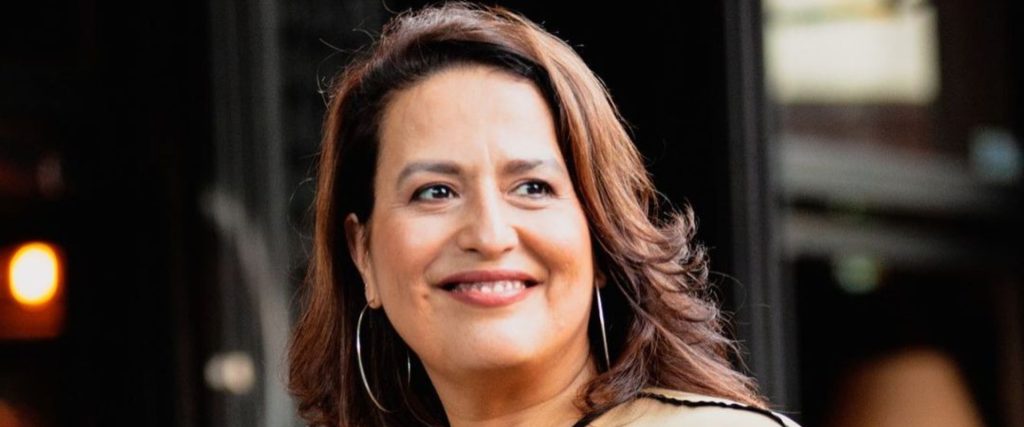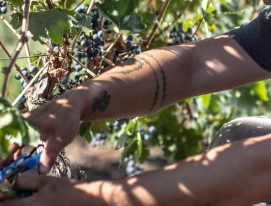Marcela Rienzo took to sommellerie at first sight; she was working in marketing and on a gig for a winery became smitten with the stories she was hearing from sommeliers: the lives of the producers, descriptions of aromas and landscapes, anecdotes and conversations told over glasses of wine.
She hadn’t planned a change of profession, but before she knew it, she’d signed up for the new sommelier degree being given in Argentina for the first time. “I’d never heard of the job, I didn’t know it was a profession, but after the first class I was hooked.”
The whole winemaking process wowed her in several different ways: “it’s not just the process by which the raw material (grapes) is turned into wine, it’s the fact that the details make each label unique and unrepeatable. Of course, I’m passionate about wine culture, seeing how people love what they do, from the vineyard through the oenology to the service. A lot goes into a glass of wine, it’s magical, I love it.”
Today Marcela Rienzo has forged a distinguished career for herself: she teaches, advises a range of gastronomic enterprises and is a major promoter of Argentine wine (she’s the only sommelier on television in Argentina, appearing on the program Cocineros Argentinos, on the channel TV Pública). She’s also the author of the book, Chin, Chin, el vino es fácil (Cheers, Wine is Easy) and created the first aromatic kit specially adapted to Argentine terroirs – Spiritu Aromas del vino.
In March Marcela Rienzo was elected to the presidency of the Argentine Sommelier Association and her master plan is to apply the method she learned from her grandparents: work, work, work.
Interview with Marcela Rienzo
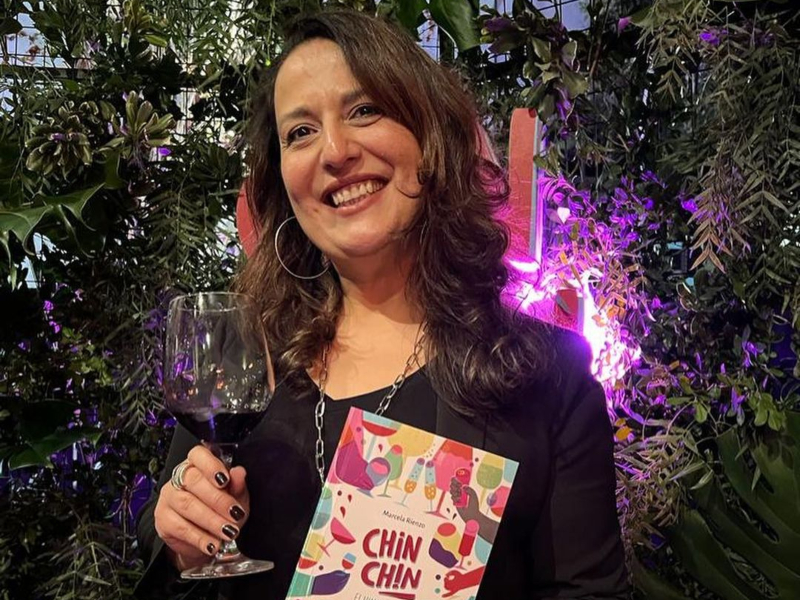
You’re the first woman to be elected President of the ASA and you asked your colleague Natalia Suárez to be Vice-President. Why do women do so well in the trade?
Every woman sommelier has her own history in the world of wine. We all have different personalities, which is what is so fascinating and enriching. The Board of Directors also includes Andrea Donadío, Valeria Gamper and Paz Levinson, among other prestigious professionals such as Maco Lucioni and Pablo Colina. It’s like we have the whole Argentine dream team (laughs).
But there are a lot of successful women in the profession and across the industry. Women founded the first school of sommeliers (EAS); and of the 9 Argentine championships, 8 were won by women. Argentine women professionals are also representing the country wonderfully overseas, for instance Paz Levinson in France and Valeria Gamper in Spain, among others, are demonstrating the sensitivity and hard work of Argentine sommeliers.
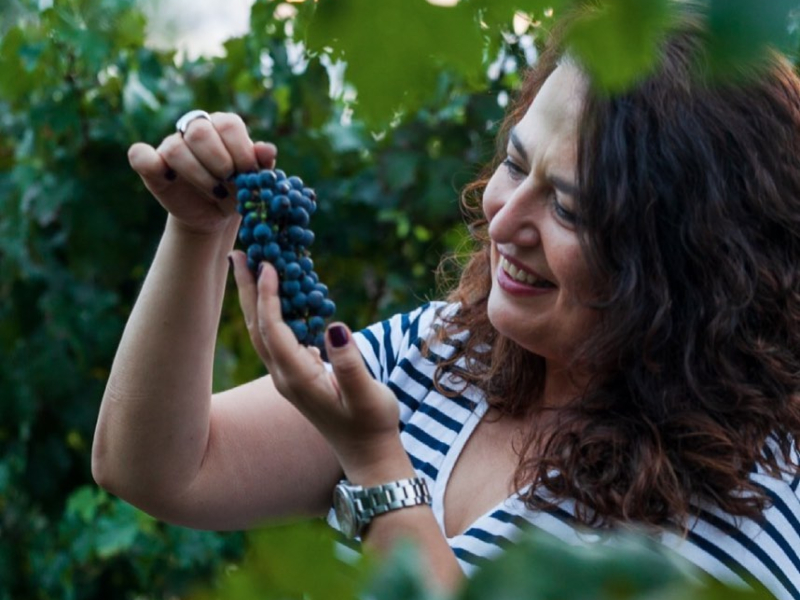
How do you envisage your mandate?
I like to think of the Association as a place for us to come together to think collectively, that connects professional sommeliers across the country. It’s a non-profit organization whose mission is to professionalize sommellerie. Our goals are to improve training and facilitate excellence and so we’re working to help sommeliers across the country to access more and better sources of expertise. We’re not a club, we aren’t selling anything and we aren’t an educational institution. We work to achieve the growth and development of our profession and our associates come to the ASA to join a larger community.
I’m following in the footsteps of Matías Prezioso and Valeria Mortara (the outgoing directors), and will continue their quest to achieve more, to make sommeliers more professional, to lobby for more training, to instill a service culture into the blood. That is what I have learned and my time in the post will be dedicated to sharing all the joy I find in the office.
Argentine sommeliers are key to promoting Argentine wine across the world… Do you think the strategy should be expanded?
Of course, one simply has to look at Paz Levinson, our pride and joy, a tireless ambassador for Argentine wine, who has that sensitivity in her DNA. She, Valeria and many more colleagues are people who have made a great effort, never stopped studying, and put their expertise into practice every day.
Thanks to these and so many other sommeliers who work overseas, Argentine wine has an enormous opportunity that we need to take advantage of in conjunction with other major institutions such as Wines of Argentina, for instance.
What is the most important message right now?
We have an excellent trump card with Malbec, which has won over palates and glasses the world over. Now it’s time to showcase everything else that Argentina has to offer. There are a lot of wineries interpreting terroirs incredibly well, who keep producing more extreme products, and I think that opens up plenty of opportunities.
Today is the Day of the Sommelier. Do you think that the industry recognizes the importance of the profession?
The Argentine Sommelier Association is one of the most important in the region; it has won awards several times for best communication with members, we have a newsletter with over 20,000 subscribers across the world, not just Argentine sommeliers. We work hard in many different fields, not just communication but also training. The industry respects us, it sees sommeliers as vital cogs and now more and more sommeliers are working for the sales departments of wineries as brand ambassadors.
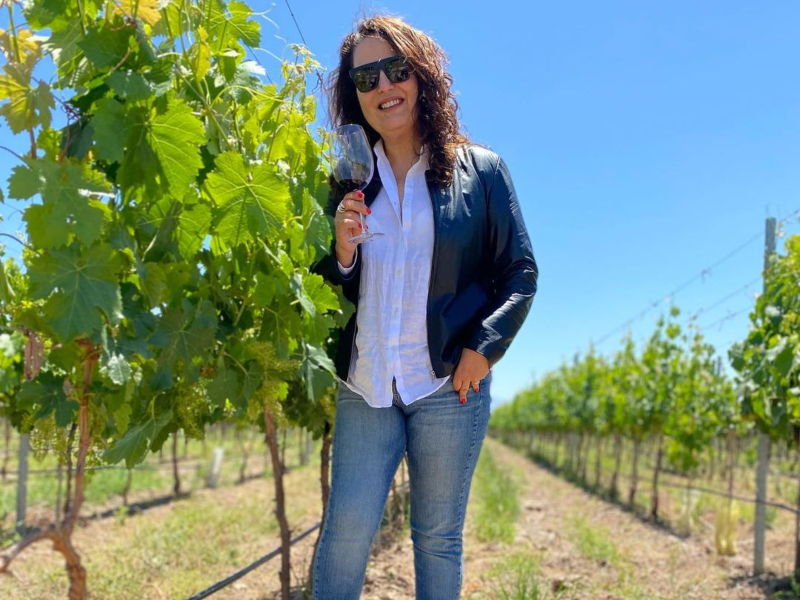
How can we expand wine culture in Argentina and overseas?
I think we have an excellent wine culture. We’re a major producer and we offer excellent quality at every price segment, there’s wine on the table every day. Of course, most of the wine consumed in Argentina isn’t high end, although Argentine wine is winning a greater share of that segment here and overseas due to the quality we offer. We need to keep burnishing that image.
As regards our work at the ASA, we stay in touch with colleagues across the world to share news about how our wines and regions are developing. Our initiatives are allowing us to reach leading figures of sommellerie in every market and we put a lot of energy into that.
We don’t just love telling people that we’re a producer country, we also have a very profound connection with wine because in Argentina the bottle of wine on the table has a very significant emotional and cultural value that connects us to the country and our family histories. That is undoubtedly something the world sees as a very significant, distinctive quality.

